1/02/2016 - 1:26 pm
0
The specializing knowledge about human behaviour research, advocacy and counsel for women and children who are the victims of domestic violence; depression counselling and case management of children who are diagnoised with mental disorders were shared in this seminar.
On January 22nd, 2016, the seminar “Social work in health care” was held at RTCCD office in Hanoi. Participated in the seminar were Public Health Master Candidates from New York University Global Health program in collaboration with HealthRight International, including Cristina Chin, Lola Garcia, Montserrat Soler, Ambreen Khan and staffs from SWPDC including Mai Nguyen and Nazik Nasser, a social work trainer from Australia. The keynote speakers were highly experienced in social work, human behaviour research, advocacy and counsel for women and children who are the victims of domestic violence; depression counselling and case management of children who are diagnosed with mental disorders.
30 participants attending the seminar are professional social workers from Social Work Department (Paediatric Hospital and National Hospital of Obstetrics and Gynaecology), Centre for Counselling, Research and Empowering Community, Counselling, Researching and Life Psychology Joined Stock Company, Child Protection Hotline Service (Childcare and Protection Department) and social work lecturers and students from Universities in Hanoi, such as Vietnam Trade Union University, Vietnam Youth Academy, Hanoi University of Education, and University of Social Sciences and Humanities.
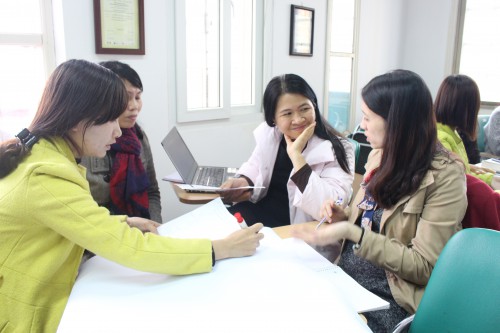
Seminar’s participants discussed actively about key topics
Experts shared and lectured information containing the analysis of the origins and specializing development of social work and diversification of clients in need (HIV/AIDS, domestic violence, heroin addiction, patients, etc). Especially in United States, social work is considered as a key component in healthcare system. This shared information were similar to the opinions of social workers, lecturers and students in the Seminar when they reached consensus on the role of social worker is not only in psychological, emotional and social support for clients but also in stress reduction for doctors, nurses, physicians at the hospitals. Therefore, it is impossible to replace the role of hospital social workers by another profession as well as hospital staffs and doctors cannot perform social worker’s role at hospitals.
For further information in social work, Ms. Nazil Nasser, social worker volunteer at RTCCD presented the Principles of case management in social work in healthcare. Putting theories in specific case studies group discussion, participants are not only grasped fully the process of case management but also enhanced the capacities and focusing services for particular clients.
Public Health Master Candidates from New York University, Cristina Chin and Lola Garcia presented “Trauma-informed care in social work”, an interested and useful topic for social workers, lecturers and students. The specific content for the cases that clients get shock and depression or the case of mental health care for the victims of harassment and domestic violence. Experts also introduced cognitive behavioral therapy used for post-trauma treatment with basic exercises such as muscle relaxation method and breathing exercise and guided imaginary. In this part, social work students are interested in trauma-informed care to support children suffering from traumatic health incidents by approaching and focusing on themselves not on the incidents that they suffered from.
Dr. Ambreen Khan shared information about the Educational program for children with autism and families in Bronx-Lebanon hospital, New York. This model is operated effectively thank for the role of social workers who voluntarily support children and families for grouping parents of children with autism, conducting monthly section, contacting doctors and assisting in procedure preparation for children during treatment process at hospital. They also provide parents knowledge, improve skills and capacity to care and educate at home. Social workers of two hospitals were interested in these educational models because they can be established in hospitals to share information, connect resources and help them integrate into their community.
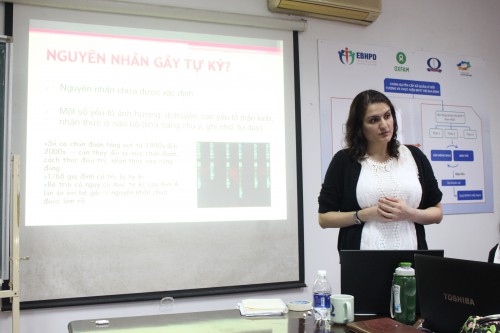
Dr. Ambreen Khan shared information about the Educational program for children with autism and families in Bronx-Lebanon hospital, New York
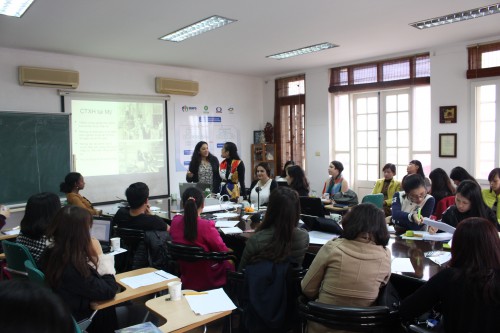
Dr. Montserrat Soler presented briefly about social work in United States
Through this seminar, lecturers and students can broaden their knowledge, especially students who stated that they have known more about different career opportunities in the future.
Here are some photos of the seminar:
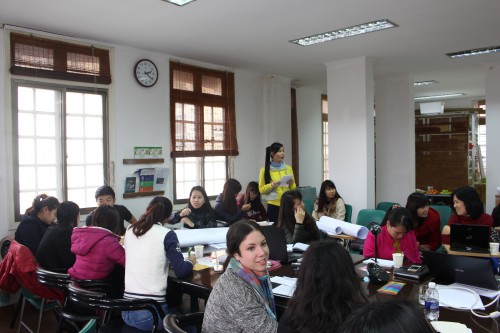
Social work students raised questions for the experts
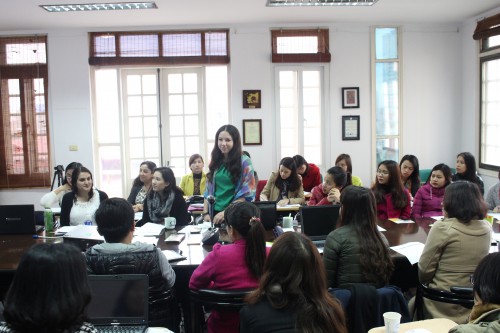
Lola Garcia, Master candidate shared about trauma-informed care in social work
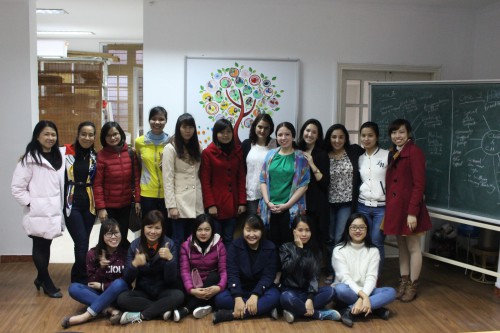
Experts, social workers, lecturers and students attending the Seminar
Linh Phung